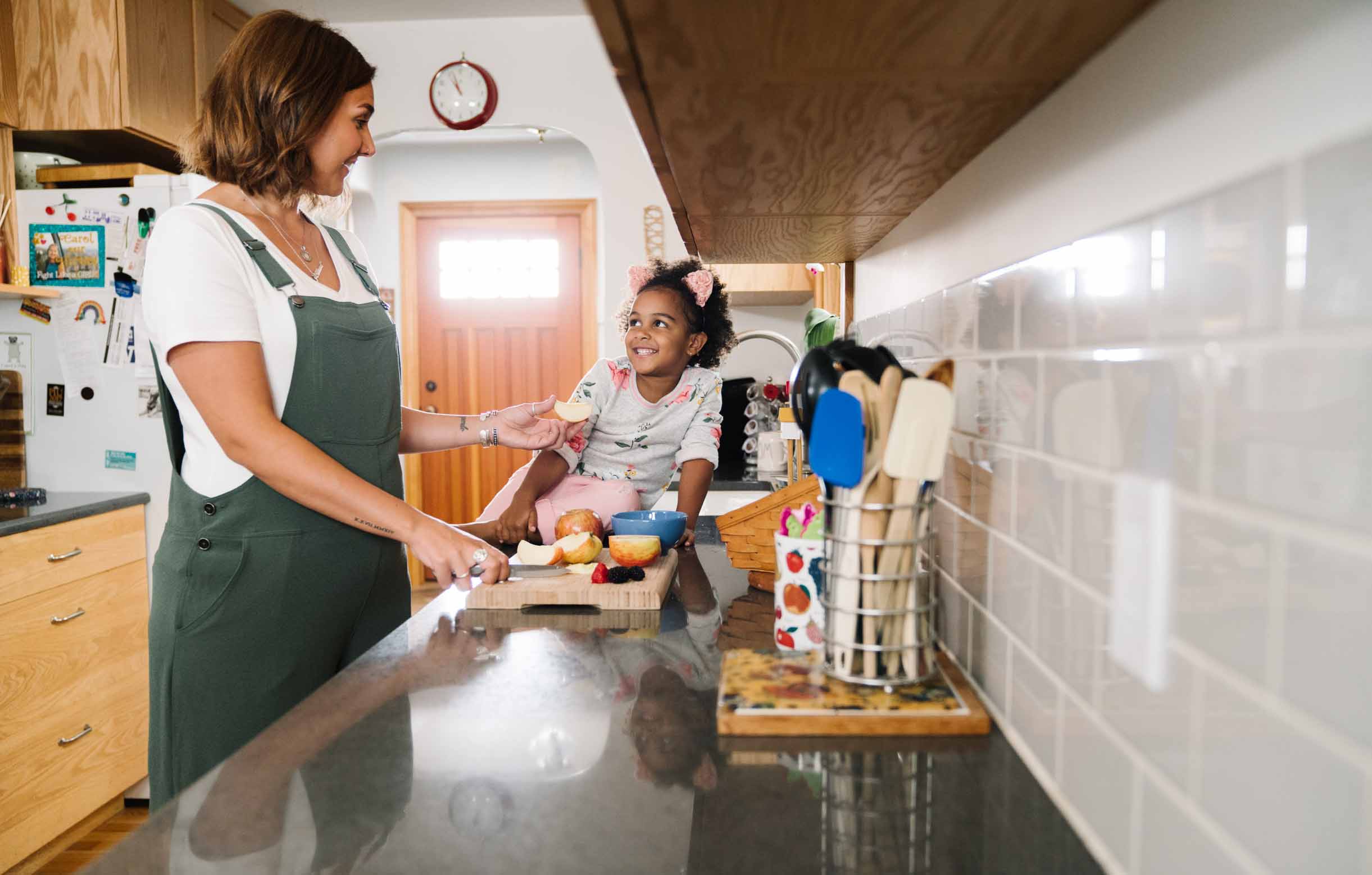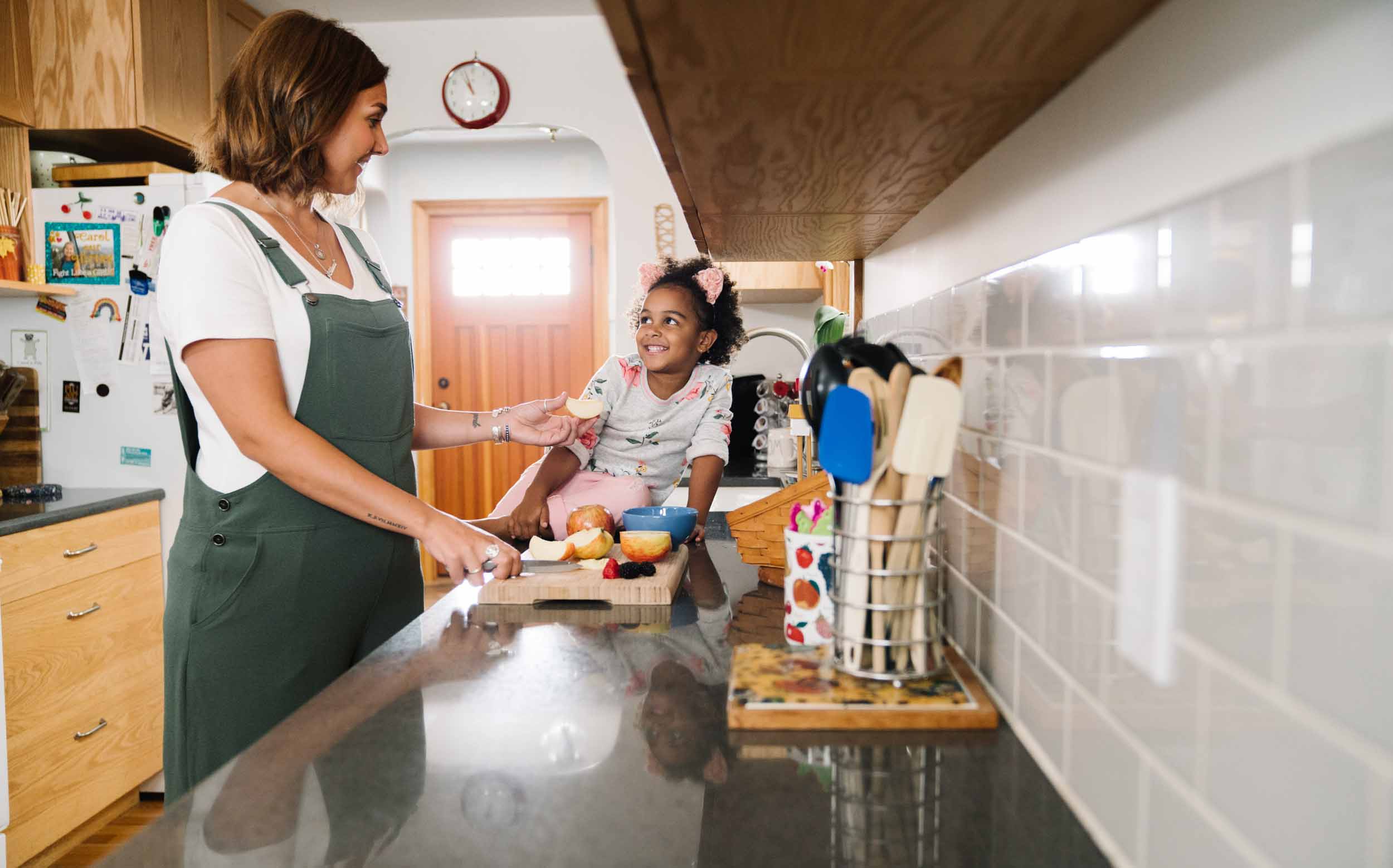Cooking with Kids


Getting involved in the kitchen is a fun family activity for all ages. A recent study conducted by the University of Alberta found that children who regularly helped in the kitchen were more likely to have healthier eating behaviours and were more likely to develop cooking skills that continued into adulthood. Children as young as two years old can benefit from kitchen activities that promote sensory exploration, and older children can help with meal planning and execution.
Use food for sensory learning
Amber O’Connor, a graduate of the pastry program at Northwest Culinary Academy, avid home cook and mom of two little boys under the age of three, is a big fan of incorporating kitchen activities with any subject that her two young children are learning about at the time. She says “It's also kind of fun to tie it into a lesson. So if we're learning about colours, why not make rainbow salad?” Very young children can combine ingredients in a big bowl with their hands or a wooden spoon, providing the opportunity to have a healthy snack while learning about different colours, textures and tastes.
Plant a vegetable garden
It’s important for young children to have a sense of where food comes from for them to begin thinking about food waste and scraps. Planting a vegetable garden, whether in a container or in the backyard, is a hands-on way to learn about where food comes from. O’Connor has already been teaching her oldest son about the subject, “We talk a lot about sustainability too as toddlers are just naturally kind of wasteful. This spring we will be planting a garden so he can see how much work goes into producing the food we eat.” Younger children can help with planting seeds, watering the plants and picking vegetables and herbs to use in their meals. A composting program is also an ideal opportunity to demonstrate the importance of not wasting food scraps whenever possible.
Build a recipe based on a theme
Make-your-own tacos, pizzas, baked potatoes and chili bowls are a great way to have fun in the kitchen while creating a nutritious meal in the process. Have older children help with prep by cutting up ingredients and grating cheese. If kids are still too young to use a knife, they can participate in the building process once everything is prepped. Provide an assortment of nutritious toppings and encourage experimenting with different combinations and flavours.
Assign meals for the week
Whether it’s making school lunches or tackling the family dinner once a week, including older children in meal planning and preparation, teaches valuable life skills that will lead to better food choices as an adult. For school lunches, parents can purchase groceries to be used strictly for that purpose and kids can pick out what they’d like each day. Sandwich ingredients such as deli meat, roasted chicken, and cheese slices are good fundamentals to keep in stock, as well as cut up vegetables, hummus, small yogurt containers, fresh fruit and cooked grains. Local libraries often have a large selection of cookbooks aimed for children and can provide plenty of fresh inspiration for meals from all over the globe. Encourage children to try new recipes and not to feel discouraged if a particular dish doesn’t work out the way they had hoped.
Don’t forget cleaning up!
Proper kitchen cleanup is a necessary part of maintaining a hygienic and safe cooking environment. Doing the dishes, wiping down all surfaces, properly disposing of food waste and putting all ingredients back after using them are all chores that children of all ages can help with. Make kitchen cleanup a fun experience by listening to music or a podcast, or simply use the time to talk about the day’s events. The more positive connotations children have with cleaning up the more likely these habits will continue into adulthood.
